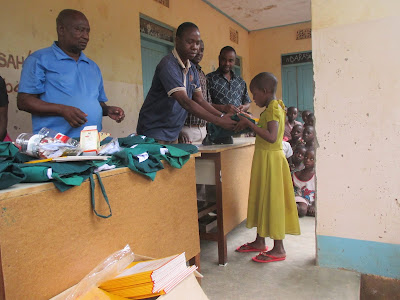On the 25th
of August NIHEP organized the event “Parents’ Saturday” for the families in
“Children’s support” -project. The aim was to bring the community together by
inviting the families, education stakeholders, teachers, ward officers and
para-socialworkers to discuss about the importance of the education. The event
was held at Sahwa school in Lwanhima and was inspired by the last year’s event
for the parents of the girls in “Wasiliana” project.
The content of the day
included introductions, speeches from the teachers and NIHEP officers and open
discussion. In the discussion the participants talked about how to support the
children how to go to school. The parents shared about their own situation and challenges
they are facing and advised each other. The ward education officer encouraged
the parents to co-operate with the teachers and ensure that the children are
going to school. The academic teacher told the parents about the “Tusome” –project
and the importance of the reading, writing and counting skills.
In the end the
participants were introduced an art exhibition which the children had made. All
in all we were happy to see that there were approximately a hundred
participants in total. We felt that the event was a success and the
participants were active in taking part in the discussion. The event was a good
start for the collaboration in the community between the education stakeholders
and the parents. We would like to thank all the participants for their interest
and The Global Social Work Finland for providing the refreshments of the event.











